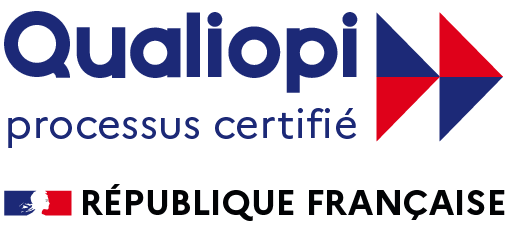COPING WITH THE TRANSITION OF EXPATRIATION
Lynsey Swords-Mccann • November 27, 2018
Relocating can be stressful. However, anticipating some of the ways in which relocation might be challenging and thinking through some possible coping strategies can go a long way to helping you to manage the transition positively and effectively. Here are some tips you might find useful:
- Focus on the many benefits and opportunities – There are many benefits and opportunities to spending time living and working in another country. There’s so many new experiences to have and opportunities to discover and it helps to try and stay focussed on these when overwhelment and doubt creeps in. Write a list of the benefits of living and working in your chosen country and pin point your own personal goals. Establish what you would like to get out of the experience personally and think of ways in which you can work on achieving these goals.
- Identify your sources of support – Identify what your new support network looks like now that you’ve moved and use it. If your new network is slow to establish initially, how can you work on extending it in your new host country. Are there any classes or activities you enjoy doing in your spare time that you could get involved in? Or look at the NetExpat Community for support. Whilst you’re working on building your new support network, leverage off the one you have just left behind via Skype, Facetime, Social Media, E Mail or phone. The world is a lot smaller than it used to be and it’s easier than ever to stay in touch with friends and loved ones.
- Be Kind To Yourself – Having been through a country relocation myself, I understand that it can feel like you’re on an emotional rollercoaster at times. Rest assured that this is a completely normal reaction to change and the mix of highs and lows will pass. They say it takes six to eight months to really settle into a new country and feel completely comfortable with your new environment/work so whilst you’re working your way through this settling in period, be kind to yourself and be patient with how you’re feeling day to day.
- Make The Most Of Your Free Time – Whether you’re working, studying or managing your home during this period of relocation, make plans for you and your family to experience everything your host country has to offer. For example, for those settled in the UK, book tickets for a show, see the many fantastic attractions that make the UK unique or take a day trip to one of the many free museums. Work on making some amazing memories you can take back home with you once the assignment is complete.
- Prioritise – It can feel that there is so much to organise when you initially move to a new country and it can feel overwhelming. Try to prioritise what needs to be done first and focus on one action at a time. Make a list of things to do in those initial few weeks and once each is complete strike a big bold line through it. You’ll be surprised how satisfying it is to see all those tasks marked off as each day passes and you become more settled!
- It’s OK To Feel Lonely, Frustrated, Angry, Fearful etc – It’s very common for negative feelings to creep in once the adrenaline of the move has subsided and your days are less busy managing the logistics of your recent relocation. Again, this is a normal reaction to transitioning into a new and unfamiliar environment. Acknowledge how you're feeling and that it’s ok to feel that way and then explore ways in which you can feel more connected to and positive about your new environment. Work on determining what you need to do personally to alleviate these feelings (and this might be different for each individual). Talk to your friends and family about how you’re feeling and be open with them about the support you need from them.
Share this post

Anu brings over seven years of experience in Learning & Development and Human Resources, shaping her career around helping people grow, adapt, and thrive. Her early passion for psychometrics, talent management, and capability‑building led her into the HR solutions space, where she deepened her expertise in behavioral insights and learning strategy before stepping into her role as Senior Manager, Advisory Services – India at NetExpat. Today, she supports Indian talent navigating global mobility and intercultural transitions, energized by daily conversations with individuals from around the world and inspired by the continuous learning that comes from working with a truly global team.

When it comes to global talent mobility, agility is crucial to an organization’s long-term strategy and competitiveness. With mounting pressure to deliver seamless employee experiences—while managing cost, compliance, and cultural complexity—the question isn’t just what to outsource, but also what to own and automate to stay relevant and scalable over time. This post explores how companies can align operational choices with their internal capacity, cultural context, and long-term goals. The right balance is unique to each organization’s talent and operational needs.

Des brings over 25 years of global mobility expertise, beginning with guiding people through the life-changing decision of buying and selling homes before moving into relocation in 1990. His passion lies in building impactful, human-centered mobility solutions, shaped by personal relocation experiences and lessons in cultural awareness. At NetExpat, he thrives on the intrapreneurial energy of a global team that feels like a “27-year-old start-up,” inspired daily by colleagues’ talent and dedication. Motivated by the chance to create sustainable solutions that truly make a difference for individuals, families, and organizations, Des envisions mobility evolving into a strategic, end-to-end resource that elevates the human experience.

When organizations support mobile employees during an intercultural assignment, they benefit long after those same individuals repatriate. The trouble is, too many businesses don’t see repatriation as a component of the assignment, which can have negative outcomes for both them and the employees they’ve invested in: Without repatriation support, employees face a myriad of challenges, from reverse culture shock and career uncertainty to feeling diminished. Businesses end up paying the price, from employees being disengaged to losing talent altogether. Both have negative impacts on a company’s ROI.

Leadership styles vary widely across cultures—and when global teams work together, those differences can quietly shape everything from decision-making to team morale. What feels like clarity to one supervisor may feel like micromanagement to an employee from another culture. Respectful silence meant by one team member may be misread as disengagement by a leader with different cultural values and expectations. These mismatches aren’t about competence or intention—they’re about interpretation. And without cultural understanding, even high-performing teams can struggle. Training your workforce to navigate diverse leadership styles—to develop intercultural agility— is more than a soft skill. It’s a strategic investment. Employees need support to adapt to unfamiliar supervisory approaches. Leaders need coaching to flex their style in varying cultural environments. And organizations need expert partners who understand the hidden dynamics at play. Organizations that foster culturally agile teams build resilience and adaptability across diverse workforces. In addition to cultivating mutual understanding, they facilitate bridging gaps between leaders and their teams by encouraging open communication and flexible leadership approaches. This foundation further supports team collaboration, productivity, and innovation.

Tracy brings her passion for people, coaching, and consultative sales to NetExpat. With a background in business psychology and years of experience guiding individuals and teams, she thrives on building client relationships and supporting growth. Tracy values NetExpat’s culture of equality, collaboration, and respect, where every voice matters. Motivated by making a genuine impact, she envisions global mobility becoming increasingly diverse, strategic, and human‑centered in the years ahead.

At NetExpat, we believe that global mobility is more than logistics, it’s about people, families, and the human experience of moving across borders. That’s why we launched the Global Care Awards to honor the organizations who go above and beyond to support mobile talent with care, inclusion, and strategic vision.

What if your AI tools are unintentionally costing you great hires, damaging team morale, or shrinking your global reach? Cultural bias in AI happens when technology reflects the norms and assumptions of the culture it was built in. That means even the smartest algorithms can struggle to interpret behaviors or communication styles that differ from the data they were designed and trained on. The result? Missed opportunities, disengaged teams, and tech that undermines—rather than supports—your global strategy. In today’s interconnected workplaces, understanding and addressing cultural biases is ethical, but it’s also about business resilience and growth. This blog post offers a clear, practical overview of where these biases show up and how you can build AI systems that truly support diverse teams and markets, along with business sustainability and growth.

Today’s global hiring landscape is complex. A candidate’s ability to succeed isn’t just about their qualifications; it’s about whether they can thrive in a new geographic, cultural, and/or corporate environment. Too often, companies assume preparing for success starts at the onboarding phase, but, in reality, the most crucial hiring decisions happen much earlier—during the pre-decision phase. Why does this matter? Because hiring the right talent isn’t just about filling a role; it’s about ensuring long-term success. Without assessing readiness factors early, companies risk costly misplacements, cultural mismatches, and logistical hurdles that could have been avoided. This is where internal mobility and talent acquisition teams can align and collaborate to transform hiring into a truly strategic process – one that ensures the right talent is selected, supported, and set up for success.






